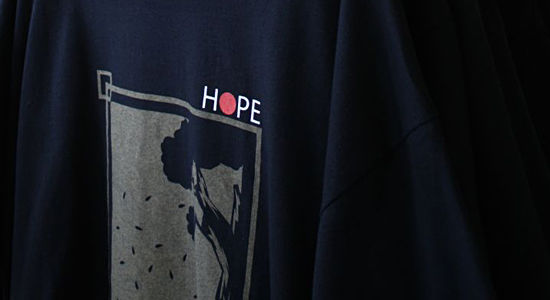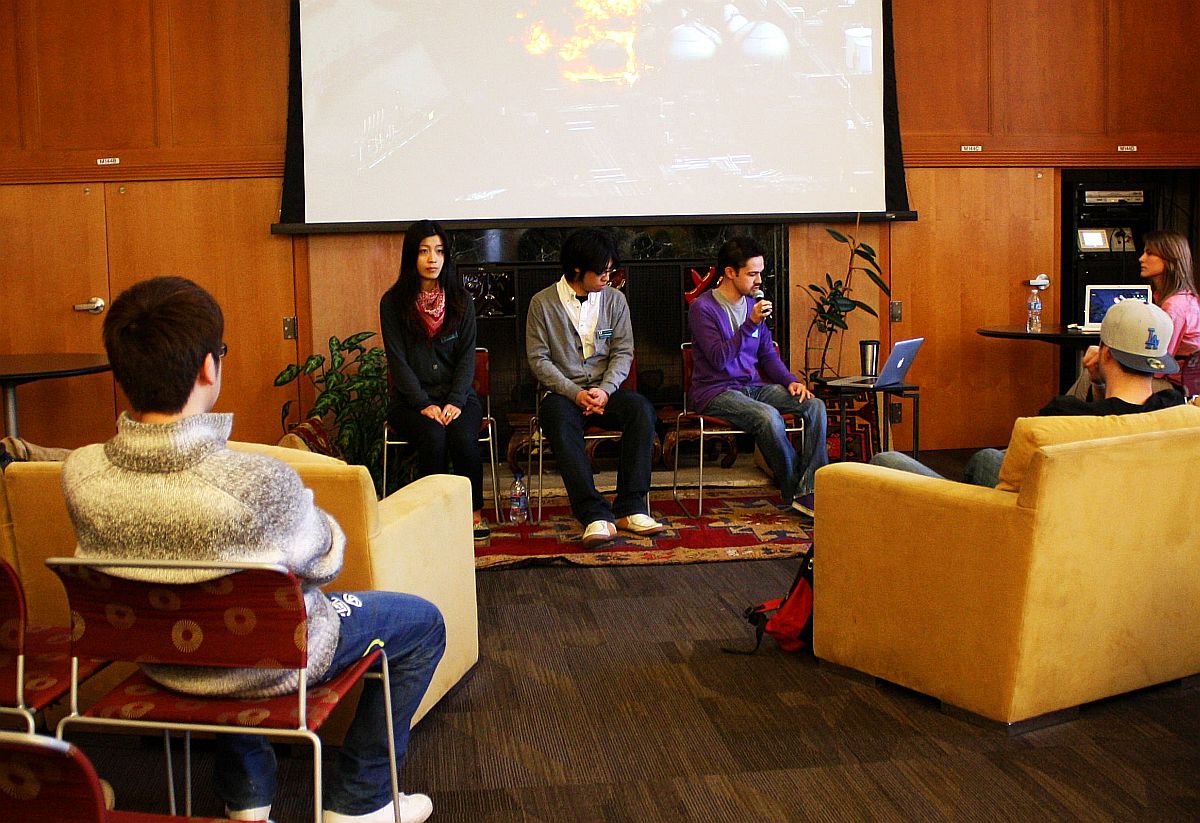Story by Stephen Zegalia
Photos by Taylor Woolsey
On Tuesday, April 12, a number of students and faculty gathered in the Mills International Center as part of International Week to hear Japanese students talk about the earthquake and tsunami of March 11. The event, one of several organized by students in the wake of the catastrophe, allowed the students the chance to express their personal experiences in dealing with recent events.
“I was not able to believe this was happening in my home country,” says Yoshie Reder, an International Studies major from central Japan who was one of three speakers at the event. “I could not really express this feeling [I had] because this was my first time with a huge disaster. I couldn’t sleep the night [after the earthquake].” Fellow student Chihiro Hayakawa and Mills employee Kellen Wertz expressed thanks for the support of the UO community, and encouraged the audience to realize that the problems caused by the quake and tsunami are far from over, as evidenced by the recent nuclear crisis.
“You can help build awareness that this is an ongoing problem,” said Wertz, who also pointed out that the recovery costs will total over 180 billion dollars.
While many were shocked and scared by the events of early March and the continuing nuclear crisis, the Japanese student community wasted no time in coming to the aid of their country. Work on ideas began the day of the disaster, says president of the Japanese Student Organization Zachary Yamada.
“Basically we gathered a group of people at the office, and made a plan to see what we could do to help,” he said. “We came up with the idea of tabling for donations at the Duck Store, and we designed a relief shirt with the Duck Store that came out during spring break.”
The JSO and the aid group the UO Sendai Earthquake Relief Project have both been instrumental in organizing events such as the March 16 vigil, where students gathered to honor the dead and speak about their experiences. The groups also organized the April 2 Relief Festival, which featured food and musical performances in an attempt to raise money through the Red Cross. So far the groups have raised over $15,000, to be distributed in areas of need in the Japanese consulate.
“It’s really great watching this happen,” says Yamada of the Relief Festival. “I think a lot of our Japanese students felt trapped watching their families and friends back in Japan, and this is a way for them to help out.”
Raising funds isn’t the only way that Japanese students are expressing themselves in the aftermath of the crisis. UO art student Yasuka Amano dealt with the earthquake by writing a song called “9.0” (a reference to the magnitude of the quake), which she performed at the Relief Festival.
“[The earthquake] was scary,” she said. “In the days after I had to wait for phone calls to make sure everyone was ok. All my family lives there, and I didn’t know what to do. So I made a song to express what I was feeling.” Amano’s family turned out to be safe, but she, like many others, knows people who lost their houses in Sendai.
In spite of the support and hope, some students who must return to Japan feel uneasy about the state of affairs back home. Taichi Ozawa, an exchange student who recently headed back to Japan after two semesters at the UO, says he still has some concerns over the amount of radiation in the air.
“My rugby team stopped practicing outside until a few days ago because of radiation. It’s hard to tell what [the] danger is because the government and the company that owns the nuclear reactor say different things,” he says.
Although no fundraising events are currently planned for the immediate future, the UO Sendai Earthquake Relief Group is still accepting donations as the recovery effort continues. Students involved with the organization hope that although the organized fundraisers are over, they will still receive support from the UO community. At the Hope for Japan event, Hayakawa stressed that Japan will keep dealing with the problem for years to come.
“Keep paying attention,” he said. “The message is to not forget the disaster as time goes on.”









